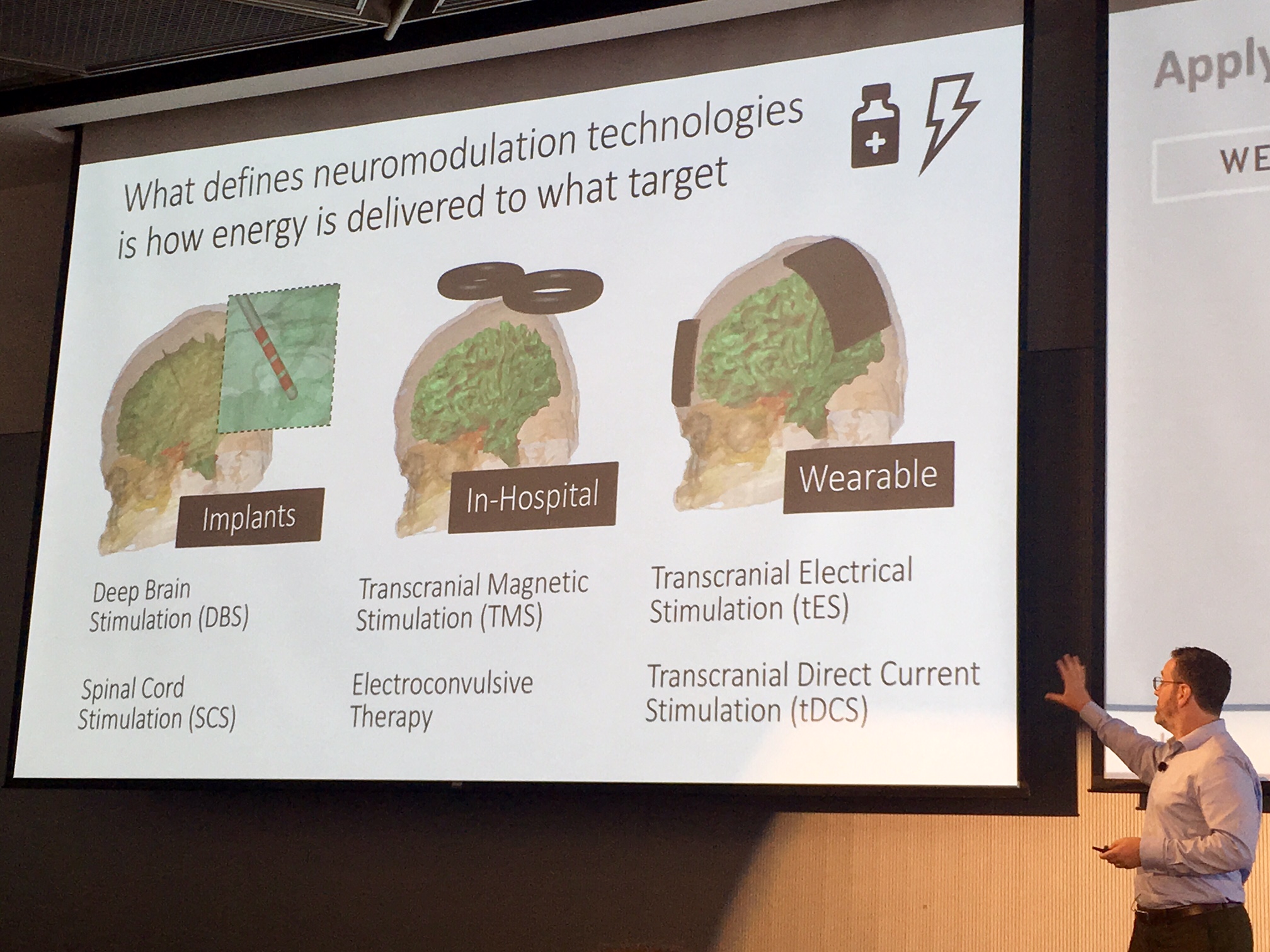Monday, October 1, 2018

BrainFutures recently attended the ApplySci Wearable Tech + Digital Health + Neurotech conference at MIT, which showcased innovative methods of early detection of disease as well as the latest in computer-brain interfaces. Highlights included:
Dr. Marom Bikson, professor of Biomedical Engineering at the City College of New York, focused on applications for wearable tDCS (transcranial Directional Current Stimulation) and how responsive adaptive technology can help with personalized non-invasive neuromodulation to treat chronic pain and depression.
Dr. Roozbeh Gafari, director of Translational Research at Northwestern’s Center for Biointegrated Electronics, shared advances in epidermal microfluidics, called “epifluidics”: soft, wearable biosystems with advanced sensing capabilities. Related technologies interface with the brain for diagnostic and interventional function in procedures to treat disorders like epilepsy.
Dr. Rudy Tanzi, professor of Neurology at Harvard and Director of the Genetics and Aging Research Unit at Mass General Hospital, spoke about the multiple ways to target Alzheimer’s pathology. He emphasized the importance of healthy microglial cells: in the absence of neuroinflammation/gliosis, a person can have abundant plaques and tangles without ever developing dementia.